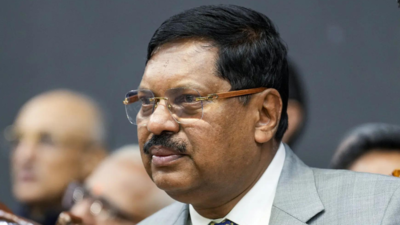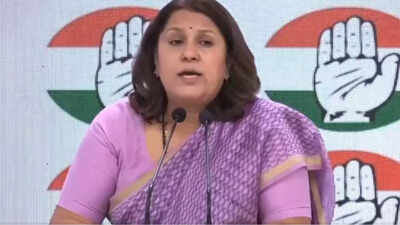‘Corruption within judiciary impacts public trust’: CJI Gavai amid Yashwant Varma cash row | India News

NEW DELHI: Chief Justice of India BR Gavai has cautioned that cases of corruption and misconduct within the judiciary can severely undermine public trust, posing a threat to the overall credibility and integrity of the justice system. The statements came in light of recent allegations against Allahabad high court’s Justice Yashwant Varma, who is under scrutiny after a substantial amount of cash was reportedly recovered from his official residence in Delhi.Speaking at a roundtable conference in the Supreme Court of the United Kingdom on “Maintaining Judicial Legitimacy and Public Confidence”, he said, “Furthermore, every system, no matter how robust, is susceptible to issues of professional misconduct. Sadly, there have been instances of corruption and misconduct that have surfaced even within the judiciary. Such occurrences inevitably have a negative impact on public confidence, potentially eroding faith in the integrity of the system as a whole.““However, the path to rebuilding this trust lies in the swift, decisive, and transparent action taken to address and resolve these issues. In India, when such instances have come to light, the Supreme Court has consistently taken immediate and appropriate measures to address the misconduct,” he added.CJI Gavai defended the collegium system for appointing judges to the higher judiciary, noting that prior to 1993, the executive held the decisive authority in judicial appointments to the Supreme Court and high courts. “During this period, the executive twice superseded the senior-most judges in appointing the CJI, which went against established tradition,” he said.“There may be criticisms of collegium system, but any solution must not come at the cost of judicial independence. Judges must be free from external control,” he added.Gavai further emphasized that in any democracy, the judiciary must not only deliver justice but also be perceived as a credible institution capable of holding power accountable. He noted that judicial legitimacy and public confidence are closely linked and essential to the system’s strength.“Legitimacy and public confidence are not secured through coercion of command but through the credibility earned by courts. Any erosion of this confidence risks weakening the judiciary’s constitutional role as the ultimate arbiter of rights. Transparency and accountability are democratic virtues,” CJI Gavai said.Addressing the contentious issue of judges accepting post-retirement positions, Gavai warned that the timing and nature of such roles could cast doubt on the judiciary’s impartiality. He cautioned that it may lead to public perception that judicial rulings were swayed by the lure of future government posts or political affiliations, thereby eroding trust in the institution’s integrity.“Another point of discussion is post-retirement jobs taken by judges. In India, judges are subject to a fixed retirement age. If a judge takes up another appointment with the government immediately after retirement, or resigns from the bench to contest elections, it raises significant ethical concerns and invites public scrutiny,” he said.




